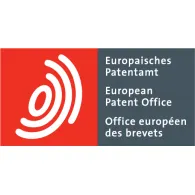Response to EPO consultation: Don’t impose oral proceedings by videoconference
December 2, 2020
Parties should not be forced to accept oral proceedings via videoconference before the EPO Board of Appeals. That is the clear feedback, at least in the responses that have been published, on the EPO’s user consultation regarding a proposed new Article 15a RPBA concerning oral proceedings by videoconference.

The proposed Article 15a RPBA reads:
Oral proceedings by videoconference
(1) The Board may decide to hold oral proceedings pursuant to Article 116 EPC by videoconference if the Board considers it appropriate to do so, either upon request by a party or of its own motion.
(2) Where oral proceedings are scheduled to be held in person, the Chair may allow a party, representative or accompanying person to attend by videoconference. In exceptional circumstances, the Chair may decide that a party, representative or accompanying person shall attend by videoconference.
(3) The Chair may allow any member of the Board in the particular appeal to participate by videoconference.
Business Europe
Business Europe, in its own words ‘the leading advocate for growth and competitiveness at European level, standing up for companies across the continent’ is one of the organisations that has published its response to the consultation and opposes the introduction of Article 15a. Some excerpts:
‘After the current pandemic, oral hearings should go back to the default on-site presence set-up. It should be the parties’ decision to ask for VICO, and not for the Boards of Appeal. In particular, in inter partes proceedings the patent owner and the opposition party should be a remain the “master” of the proceedings.
BUSINESSEUROPE has also strong concerns on the proposal that the Board of Appeal may decide to hold the oral proceedings by VICO on “its own motion”. Face-to-face oral proceedings are one of the fundamental elements of European legal proceedings and this should not be changed unilaterally by Board of Appeal in charge of a particular case.’
‘c. Explanatory notes required
‘The applicability of the proposed Article 15a would depend on a proper application of “discretion” to new, untested circumstances, and a proper formulation and application of a new test for “appropriateness”, which is a completely new and unelaborated criterion. This new “discretion” and “appropriateness” test should be guided by accompanying explanatory notes to any such provision setting the stage for appropriate interpretation. In particular, the criteria for determining when videoconference is appropriate should be the consent of the parties, and face-to-face hearings remain the default.’
‘e. Recording
BUSINESSEUROPE stresses that the prohibition of sound recordings during oral proceedings by VICO is difficult to enforce. Although professional representatives may be expected to comply with this prohibition, the disadvantages that may be incurred by recordings made by parties or the public need further consideration’
‘h. Comparative study
BUSINESSEUROPE recommends the Boards of Appeal to conduct a comparative analysis of the outcomes from the oral proceedings by VICO conducted since May 2020 with respect to face-to-face oral hearings, before any final decision on the proposed Article 15a RPBA is taken. For instance, this comparative study should focus on the impact of VICO on the adherence to preliminary opinions.’
European Patent Litigators Association (EPLIT)
‘EPLIT is (…) against introducing Art. 15a in the proposed form. Instead, Art. 15a should be amended in such a way that each party has the choice of attending an oral hearing in person or by videoconference.’

‘a. Our members expressly welcome the possibility of holding oral proceedings before the Boards of Appeal as video conferences. It is seen as an advantage that time and costs can be saved and, in particular, that the impact on the environment can also be reduced.
b. However, a very large majority (75%) of our members oppose the possibility of Boards of Appeal being able to determine, against the will of a party, that oral proceedings should take place in the form of a videoconference. Oral proceedings should only take place as a video conference if all parties agree.
c. Members’ experience with the technical process varies. A typical positive statement is: Technology works fine, and it may help to save considerable time and costs, which the client may appreciate as the case may be.
Other members have had problems with the technology. Again for a typical statement: The proceedings were frequently disrupted because opposing counsel had difficulties with the internet connection. Although our bandwidth was excellent, we also in a few instances had difficulties understanding some of the arguments and it seemed impolite to repeatedly ask the chairman or the other party to repeat their argument.
With introducing Skype for Business, the quality of the video transmission became very poor because of a very low frame rate; the Members of the Division often have a seating arrangement such that two members can only be seen from the side; the camera at the EPO is usually far away from the members of the division and their mimics can hardly be seen.
d. This last point is crucial in explaining why many members refuse to be forced to use videoconferencing. Indeed, while verbal communication is considered more or less satisfactory, most members who have already taken part in an oral hearing via videoconference complain about the largely or even practically complete loss of non-verbal communication.’
‘e. One aspect of proceedings before the EPO is that for applicants and patentees, the Boards of Appeal are the last resort if they lose. (…) the fact that this is the final instance at the EPO, the lack of non-verbal communication and the limited possibilities to use visual aids in the presentation are even more prominent.’
‘g. The participants of the survey do not only see problems in communicating with the board, but also with communicating with their own clients when they are in a different location than the attorney attending the video conference.’
EPLIT stresses the ‘majority of our members are very concerned that the right to be heard will be affected by being compelled to participate in a video conference, even if the party has objected to it.’
‘According to our members, an oral hearing by videoconference is more similar to a written procedure than a real oral hearing. Since, as the Enlarged Board of Appeal rightly observes, the oral hearing takes place at a critical stage of the decisionmaking process, it is a clear violation of Art. 113(1) EPC if an oral hearing takes place by videoconference against the will of the party.’
Bardehle Pagenberg
Law firm Bardehle Pagenberg filed a response as well refuting the new article 15a. Some quotes of their reaction (my translation, original text in German here):
‘As is not clear how long the pandemic will go on, it appears necessary that oral hearings before the Boards of Appeal are held as VICO even without the consent of the parties, in order to avoid a standstill in the administration of justice, especially in cases that have already been in process for a long time, but also in cases in which one party has an interest in delaying the matter.
However, if there is no (longer) such a risk, there are practical reasons not to consider VICOs as a full substitute for oral proceedings.’
‘For times without a pandemic, other means are available to use the advantages of the VICO technology in the context of oral negotiations, without abandoning the core of the oral hearing - a place for the exchange of oral arguments and the clarification of open questions. The current practice of the Federal Court of Justice (Bundesgerichtshof) could serve as a model for such a regulation. In a "hybrid form", the judges are together in the court room, as well as a limited number of participants, usually the leading representative(s), while other participants, e.g. representatives who have in-depth knowledge of individual points, or in-house representatives of the parties, also from overseas, connect via VICO. The essential character of the oral proceeding is thus retained, while time taking advantage of the VICO technology.’
CIPA
Half November, before the consultation started, the Chartered Institute of Patent Attorneys (CIPA) welcomed an announcement by the EPO that all hearings below appeal would shift to videoconferencing until at least mid-September next year.
Richard Mair, CIPA President, said: “The experience of our members has largely been that EPO proceedings of all kinds are very well-suited to videoconference. Not only that, we have also found that it can dramatically improve accessibility and deliver better results, more speedily, and at a lower cost for everyone. In-conference functions such as screen sharing and simultaneous side channels for communications have shown that the technology has come of age and in most respects now provides a real and improved alternative to in-person hearings.”
However, it seems that CIPA didn’t participate in the EPO consultation regarding the proposed new Article 15a RPBA; at least it didn’t publish any consultation response. So it remains unclear what CIPA’s view is regarding the proposed new power of the Board of Appeal to decide to hold oral proceedings by videoconference, even if (one of) the parties opposes this.
In an article of JUVE Patent, most IP professionals react with understanding to the EPO’s temporary extension of videoconferencing to prevent the build-up of further backlogs, and taking into account the problems caused by the corona pandemic. But many say they hope that video hearings ‘will not replace all hearings for good’.
You may also like















Concerned observer
My understanding is that CIPA did submit a response to the consultation. It is just that the response has not yet been made publicly available and so very few people are aware of its content. To my knowledge, the views of CIPA's membership were not surveyed prior to preparation and submission of the response. Make of that what you will.
Patent robot
From the responses is also evident that until the Covid emergency is over, VICOs can be mandatory